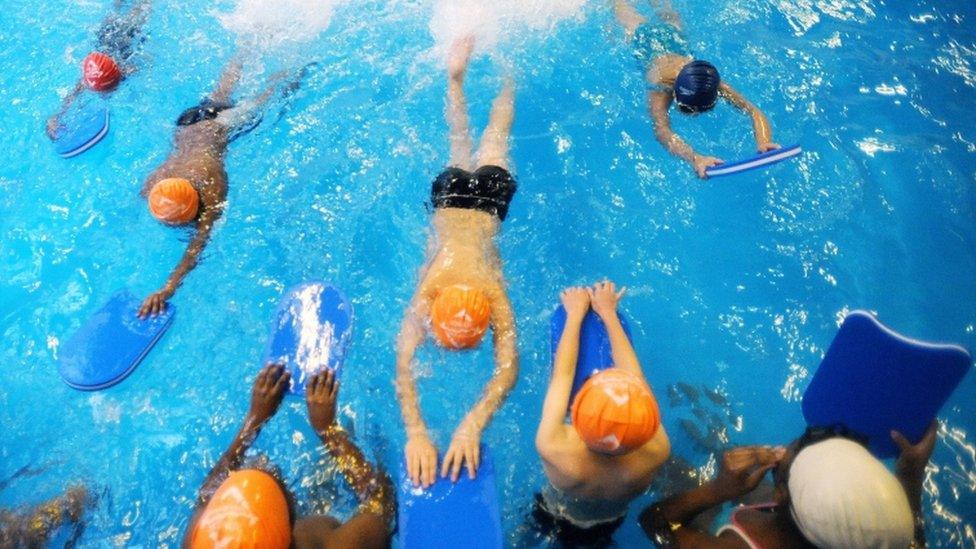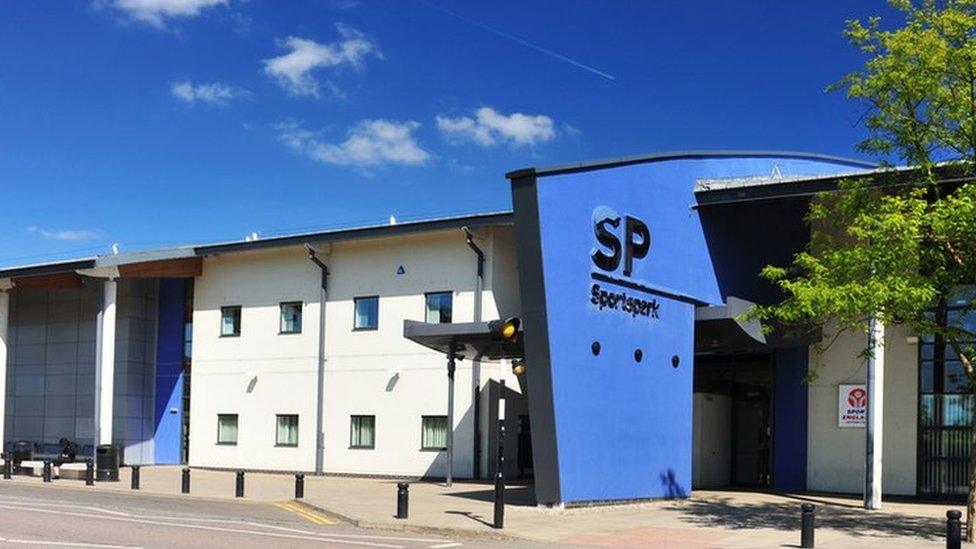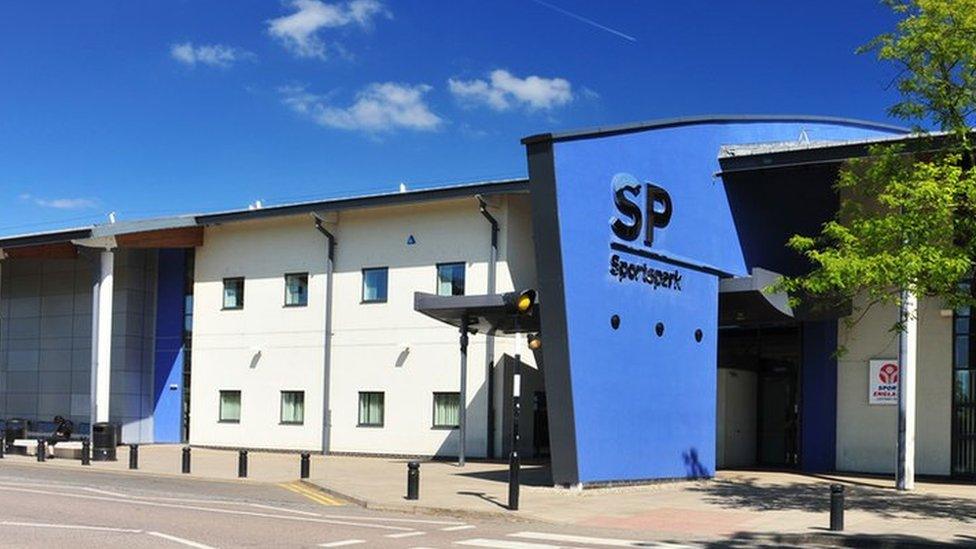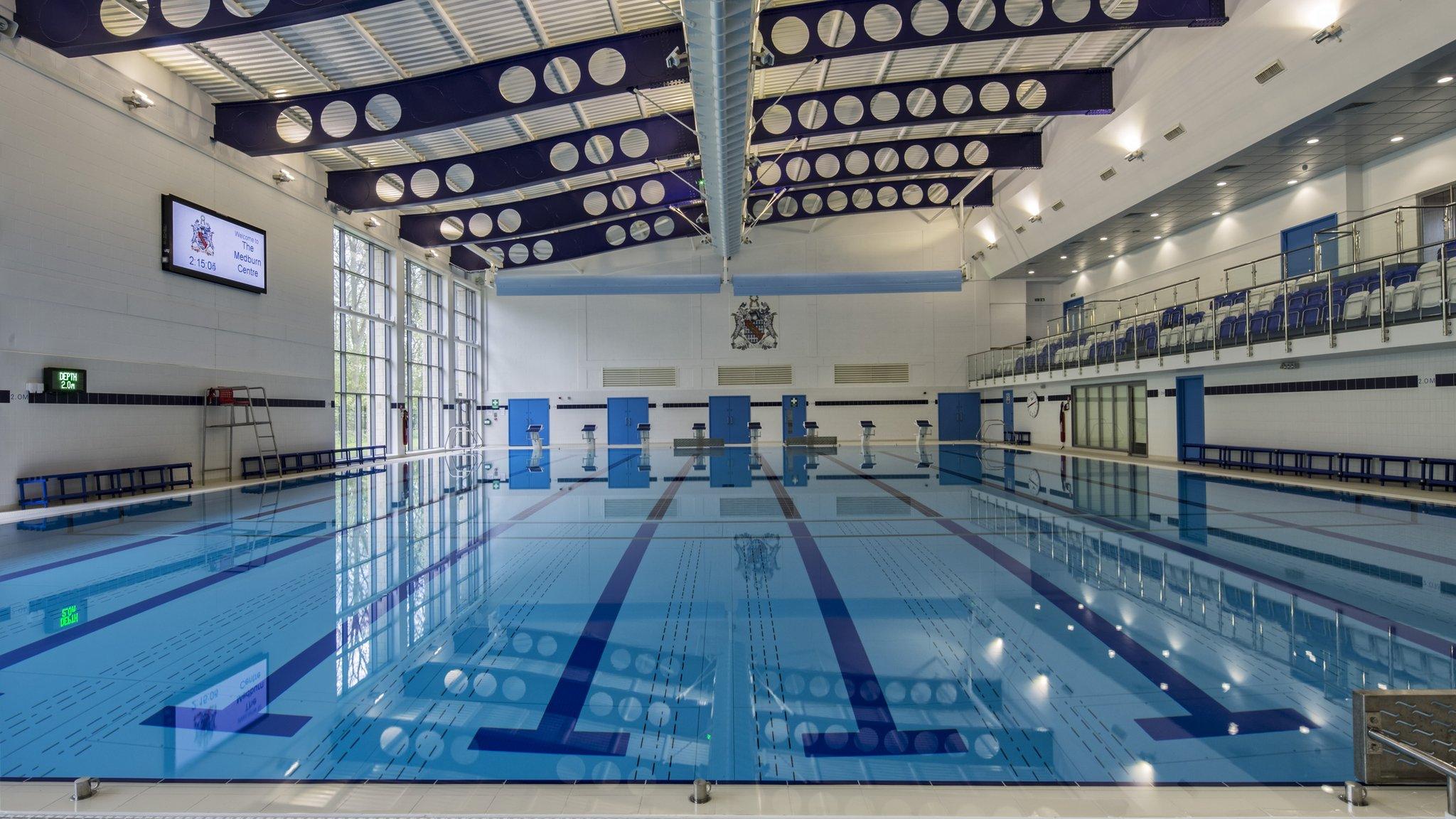Energy cost rises threaten swimming pools, industry warns
- Published
- comments

Swimming pools across the UK are struggling with rising energy costs
Swimming pools across the UK are at risk of closure as energy costs are rising, industry officials have warned.
Heating the water contributes hugely to price increases, an organisation aiming to get the nation more active has said.
UKActive has called for more support to keep the leisure facilities used by millions every week open.
The government said it recognised the impact of price rises and was regularly in contact with energy regulator Ofgem to understand the challenges faced.
Pool owners and managers have said they are considering reducing temperatures, restricting opening times and making staff cutbacks to tackle the issue.
"We really need the government to come to the table in the coming days with some support and solutions to support these essential facilities being in our communities", said Huw Edwards, chief executive officer of UKActive.
For 2021 and 2022, Mr Edwards said, a "150% increase in energy costs" was expected.
He said tackling this by reducing the temperature of pools was being considered but government support was required.
A recent survey conducted by the not-for-profit organisation showed some "really stark projections" that could result in price increases and closures, said Mr Edwards.
Many of the facilities built in the past 20 to 30 years did not have "energy efficient facilities" to support the reduction in costs, he told BBC Radio 4's Today programme.
A number of pools are owned by councils, but it was "not for the local authorities themselves to come up with the solution", said Mr Edwards.
Instead, he said, central government needed to work with local and industry leaders to find a solution in the coming months.

Sportspark at the University of East Anglia in Norwich had to close because of a chlorine shortage
A number of pools across the country have faced closure in recent weeks because of a shortage in chlorine, including one in Norwich.
Public leisure facilities were "disproportionately relied on by those on lower incomes" and the range of activities on offer was often not "economically viable" for the private sector to provide, said the Local Government Association (LGA).
Some 72% of primary schools relied on swimming pools and the rising energy costs "pose a very real and significant issue" for the leisure industry, the LGA said.
"Councils are working incredibly hard to prevent centres from closing, and understand that many people are facing rising individual costs, so have no desire to increase prices if it can be avoided", said Councillor Gerald Vernon-Jackson.
A government spokesperson said it recognised the "impact rising global gas prices will have on businesses of all sizes".
It provided £1bn "to help leisure sectors through the pandemic", the Department for Digital, Culture, Media and Sport said.

FROM MUSICIAN TO RESTAURANTEUR: How to turn your passion for food into a business
'IT'S NOT A FLAW, IT'S A GIFT': The quiet power of introverts

- Published26 May 2022

- Attribution
- Published22 September 2021
